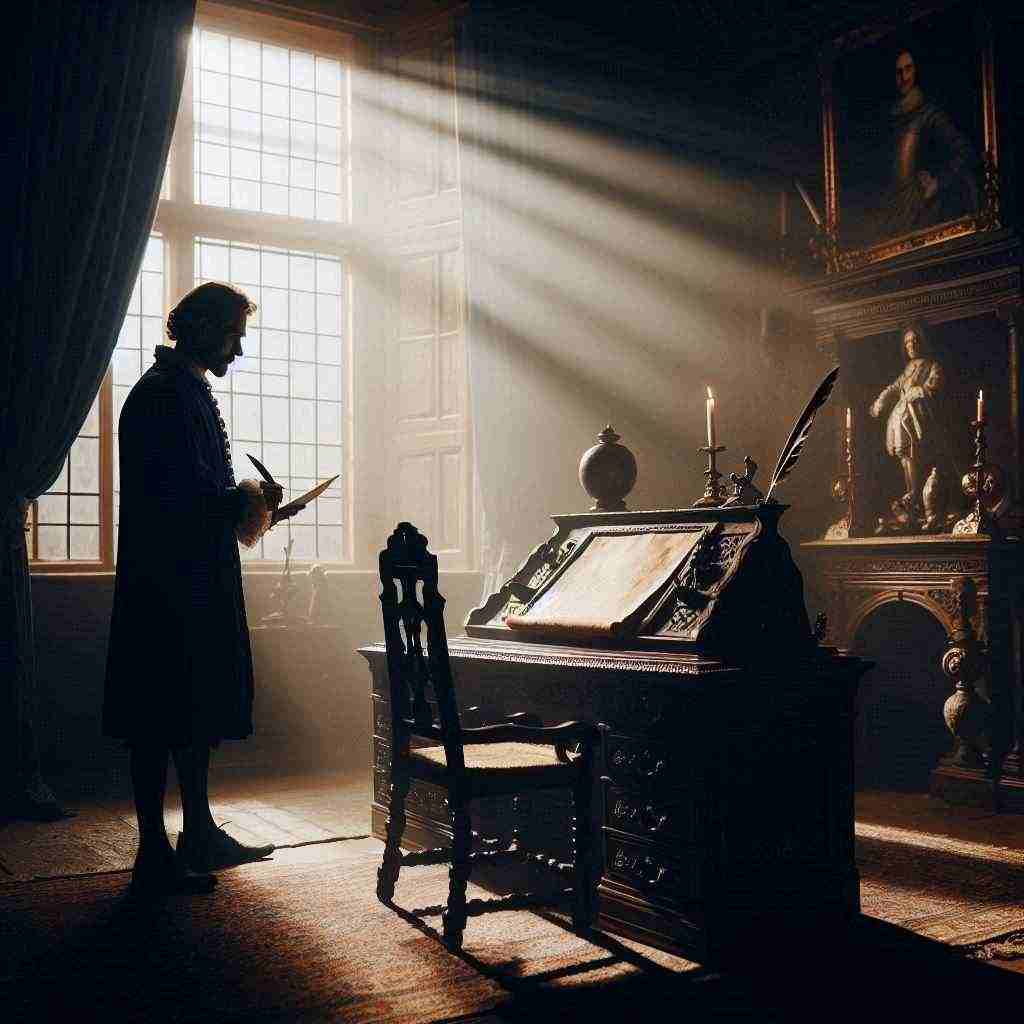2 Poems by John Milton
1608 - 1674
John Milton Biography
John Milton, born on December 9, 1608, in London, England, stands as one of the most significant and influential poets in the English language. His magnum opus, "Paradise Lost," is widely considered to be the greatest epic poem in English literature, but his contributions extend far beyond this singular work, encompassing poetry, prose, political writings, and profound influence on the development of English literature and language.
Milton was born into a prosperous middle-class family during the reign of James I. His father, also named John, was a scrivener and composer, and young John was raised in an environment that valued education and the arts. From an early age, Milton showed exceptional intellectual promise, mastering Latin, Greek, Hebrew, French, Spanish, and Italian, in addition to his native English.
Milton's formal education began at St. Paul's School in London and continued at Christ's College, Cambridge, where he earned his B.A. in 1629 and his M.A. in 1632. During his time at Cambridge, Milton began to develop his poetic voice, writing poems in both Latin and English. His early works, such as "On the Morning of Christ's Nativity" (1629) and "L'Allegro" and "Il Penseroso" (both c. 1631), already displayed the mastery of language and form that would characterize his later works.
After completing his studies, Milton embarked on a period of self-directed study, often referred to as his "studious retirement." During this time, he read extensively in classical and modern literature, further honing his poetic craft. It was during this period that he wrote "Comus" (1634), a masque that combines elements of classical pastoral with Christian allegory, and "Lycidas" (1637), an elegiac pastoral written in memory of a friend who had drowned.
The 1640s marked a significant shift in Milton's career as he became increasingly involved in political and religious controversies. With the outbreak of the English Civil War in 1642, Milton began writing prose tracts in support of Puritan and republican causes. His most famous prose works from this period include "Areopagitica" (1644), a passionate defense of freedom of the press, and "The Tenure of Kings and Magistrates" (1649), which justified the execution of Charles I.
Milton's involvement in politics came at a personal cost. His eyesight, which had been deteriorating for years, failed completely by 1652, leaving him blind for the last two decades of his life. Despite this challenge, Milton continued to write, dictating his works to assistants, including his daughters.
It was after the Restoration of the monarchy in 1660 that Milton, now politically sidelined and in danger of persecution, turned his attention to his greatest work, "Paradise Lost." Published in 1667, this epic poem in blank verse tells the story of the Fall of Man, encompassing vast cosmic themes while also exploring deeply human questions of free will, temptation, and redemption.
"Paradise Lost" is a work of staggering ambition and accomplishment. In it, Milton "justifies the ways of God to men" through a narrative that spans Heaven, Hell, and Eden. The poem's scope is truly cosmic, yet Milton's genius lies in his ability to render even the most sublime concepts in vivid, sensuous language. His portrayal of Satan, in particular, has fascinated readers for centuries, with the fallen angel emerging as a complex, almost sympathetic character whose defiance and ambition make him, for many, the poem's most compelling figure.
The technical achievements of "Paradise Lost" are equally impressive. Milton's mastery of blank verse - unrhymed iambic pentameter - allowed him to create a flexible, powerful poetic line capable of encompassing both the grandest cosmic visions and the most intimate human moments. His influence on the development of English blank verse cannot be overstated.
Following "Paradise Lost," Milton produced two more major works: "Paradise Regained" (1671), a brief epic focusing on Christ's temptation in the wilderness, and "Samson Agonistes" (1671), a dramatic poem in the form of a Greek tragedy. These late works, while perhaps less widely read than "Paradise Lost," showcase Milton's continued poetic power and his ongoing engagement with religious and political themes.
Milton's influence on English literature and language has been profound and enduring. His poetry expanded the expressive possibilities of the English language, introducing hundreds of words and phrases that are now part of common usage. His treatment of blank verse set the standard for generations of poets to follow, influencing writers from Wordsworth to Eliot.
Beyond his technical innovations, Milton's exploration of grand themes - the nature of good and evil, free will and predestination, the relationship between God and humanity - has ensured that his work remains relevant and compelling to modern readers. His portrayal of Satan in "Paradise Lost" has been particularly influential, inspiring countless reinterpretations in literature and popular culture.
Milton's prose writings, though less widely read today than his poetry, were equally influential in their time. "Areopagitica," with its impassioned defense of free speech and freedom of the press, remains a foundational text in discussions of civil liberties.
John Milton died on November 8, 1674, leaving behind a body of work that continues to challenge, inspire, and awe readers. His life spanned one of the most tumultuous periods in English history, and his writings reflect the intellectual, religious, and political upheavals of his time. Yet Milton's genius lies in his ability to transmute these contemporary concerns into works of timeless power and beauty.
In the canon of English literature, Milton occupies a unique position. He stands as a bridge between the Renaissance and the Enlightenment, combining the erudition and linguistic richness of the former with the philosophical and political concerns of the latter. His work synthesizes classical learning, Christian theology, and humanist philosophy into a powerful vision of human potential and divine purpose.
Today, John Milton is remembered not just as a great poet, but as a cultural icon - a symbol of intellectual rigor, moral seriousness, and artistic ambition. His influence extends far beyond literature, touching on politics, theology, and philosophy. In his life and work, Milton embodied the ideal of the poet as prophet and moral teacher, using his art to explore the most profound questions of human existence. His legacy continues to shape our understanding of literature, language, and the human condition.
This text was generated by AI and is for reference only. Learn more
Username Information
No username is open
Unique usernames are free to use, but donations are always appreciated.
Quick Links
© 2024-2025 R.I.Chalmers (V2Melody).

All music on this site by R.I.Chalmers (V2Melody) is licensed under a Creative Commons Attribution-NonCommercial 4.0 International License.
Attribution Requirement:
When using this music, you must give appropriate credit by including the following statement (or equivalent) wherever the music is used or credited:
“Music by R.I.Chalmers (V2Melody) – https://v2melody.com”
Support My Work:
If you enjoy this music and would like to support future creations, donations are always welcome but never required.
Donate


